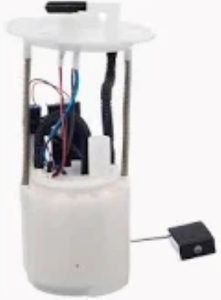Ethanol's effect on fuel pumps has been the talk of the town regarding automotive performance, with increasingly blending ethanol into petrol-fuel like E10-10% ethanol and E85-85% ethanol. Ethanol is an alcohol-based additive that attracts water and increases the chance of corrosion in all parts of the fuel system, including fuel pumps. Studies have shown that the high content of ethanol can cut the life expectancy of pumps in vehicles not built for any kind of ethanol by as much as 30%, because the corrosive properties of ethanol wear out the internal pump parts more quickly than gasoline would alone do.
Among the concerns with ethanol is that it has a tendency to absorb moisture from the air, which begets a corrosive mix into the metal parts and seals of the fuel pump. The Society of Automotive Engineers (SAE) said ethanol is water-attracting, hence instigating rust in fuel lines, thus clogging and further straining the pump as it works harder to maintain pressure. The applications involving high performance, like the pumps used in E85-compatible or flex-fuel vehicles, are made from ethanol-resistant materials that reduce risks with corrosion and moisture.

Higher ethanol content also alters fuel viscosity, which requires the differences in flow rates of the pump to struggle harder to maintain the required fuel pressure. A conventional Fuel Pump used on traditional gasoline would struggle under these conditions, thus causing non-consistent fuel delivery and a loss of efficiency, with an added predisposition for engine knock. Typically, E85 vehicles do require a fuel pump with about 30% more capacity since ethanol contains approximately 33% less energy than gasoline at the same volume.
Ethanol blends will prematurely deteriorate fuel pump seals and plastic components and allow them to leak. According to Bosch, one of the world's largest automotive suppliers, the molecular structure of ethanol causes some rubber seals to wear through at an accelerated rate, resulting in fuel leaks or loss of pressure with time. Drivers using the ethanol-blended fuel on a continuing basis can minimize these risks by upgrading to an ethanol-compatible fuel pump, assuring durable and consistent fuel pressure.
Car enthusiast and mechanic ChrisFix insists on preventive care in dealing with ethanol fuels: regular cleaning of the fuel system and adding stabilizers to prevent buildup. He further adds, "Ethanol can be tough on fuel systems, but proper maintenance and ethanol-compatible components can make a big difference," and that preparation is paramount. In fact, if good-quality parts that resist ethanol are used, drivers can save their fuel pumps from the hassle ethanol brings into the fuel system.